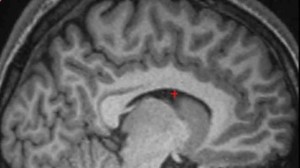A new study of the brain explains why some of us are better than others at remembering what really happened.
 A structural variation in a part of the brain may explain why some people are better than others at distinguishing real events from those they might have imagined or been told about, researchers have found.
A structural variation in a part of the brain may explain why some people are better than others at distinguishing real events from those they might have imagined or been told about, researchers have found.
The University of Cambridge scientists found that normal variation in a fold at the front of the brain called the paracingulate sulcus (or PCS) might explain why some people are better than others at accurately remembering details of previous events -such as whether they or another person said something, or whether the event was imagined or actually occurred. The research was published today, 05 October, in the Journal of Neuroscience.
This brain variation, which is present in roughly half of the normal population, is one of the last structural folds to develop before birth and for this reason varies greatly in size between individuals in the healthy population. The researchers discovered that adults whose MRI scans indicated an absence of the PCS were significantly less accurate on memory tasks than people with a prominent PCS on at least one side of the brain. Interestingly, all participants believed that they had a good memory despite one group’s memories being clearly less reliable. [continue reading…]



